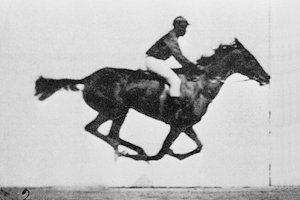 |
| Igualdad Animal Demonstration in Spain (www.igualdadanimal.org) |
The Ethics of Veganism: an Open Wound called Compassion
When I advocate veganism, I’m advocating it as recognition of a phenomenon, not as a prescription of a principle. That is, veganism is a recognition of the human condition of finitude, fallibility, and meagerness in a universe shared by other finite, fallible, and meager beings. As I wrote before, veganism as a social existence with animal others is not a foreign attitude. Rather, it is a mode we are “thrown into” when we become subjected to our own curiosity and compassion for other mortal creatures. Recognizing veganism as such holds us responsible to animal others’ interests, and holds us accountable for closing off this mode for relating to animal others as “killable” instruments for some so-called higher-value (i.e. profits, “life,” “humanity”). Thus, veganism as a social attitude motivates and is facilitated by vegetarian consumption. Veganism-vegetarianism are the means and the end of a non-exclusive social responsibility.
Veganism is therefore not the application of a principle of obligation, but the phenomenon of obligation from being addressed by the animal other to respond in return as a social being. I’m not saying that a pig or salmon speak to us or voice themselves as a human might, but that we experience the phenomenon of being addressed, being called to ourselves as social and ethical beings, by recognizing the others’ different perspective, interests, and shared vulnerability. This phenomenon is with us from infancy. Just watch the expression of wonder watching the expressions of other species. It’s similar to their gaze into the face of a human. Children are not born distinguishing the moral considerability between humans and many other animals. Just recently, psychologists Patricia Hermann and others found that anthropocentirsm is a perspective acquired around the age of five, not something innate.
The veganism I advocate fits well with Ralph Acampora articulation of ethics as a phenomenon of the body’s existence as an ecologically and socially interrelational being in contrast to popular thought that ethics is the product of transcendental principles of pure reason or codes intersubjectively consented to. Reason may be valuable in that it exposes latent prejudices and inconsistencies in how one treats others, but only by presupposing our existence as social, caring, vulnerable, and potentially violent bodies. From an ethical paradigm of the interrelational lived body, the “burden of proof” is not placed upon veganism as an extension of ethics, but rather the “ethical isolationism or contraction” of a an ethics based upon self-interest.
For example, reflect upon the times when reason has been used not as a preventative measure against violence and prejudice, but as an instrument against our sociality with and care for others (e.g. “just war,” “ethnic cleansing,” “honor killings,” vivisection etc). It is through manufacturing a code and imposing it upon the world that we can justify acting violently toward others because of the class we place them into. Arguments for fending off veganism and vegetarianism are usually no more than an elaborate game of logic to preserve one’s power and privilege over others by making violence reasonable. They defy our underlying capacity to recognize others as social beings.
Humanism's Double Standard: The Unreasonableness of Consistency
Veganism is the immanent, not the abstract, relationship we have to animal others as social beings. Although my description of veganism is abstract in form, in practice, the reasons we assign to violence are the abstractions. Animal others are exploited under the justification that they belong to a separate race we’ve created and called “animals,” and they are institutionally exploited for the good of something we call “civilization” and the “economy” for something called “capital.”






